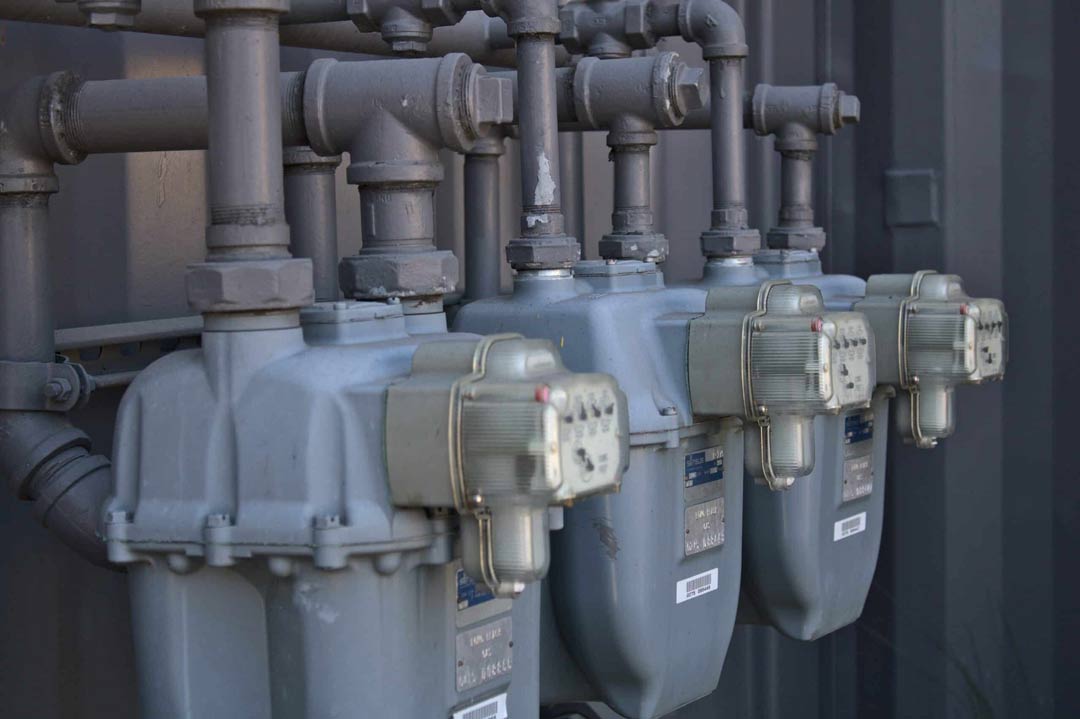There are lots of ways that going solar helps you save money, but ask around and you’ll most likely hear “Net Metering” as the most common way that solar panels keep cash in your pocket. The nifty monitoring system tracks the energy you pull from and send to the grid, and uses those numbers to keep an eye on your total energy usage.
Net metering is great for homeowners, especially as utility rates increase and peak hour usage times cause bill spikes. But it’s worth knowing the nitty-gritty of Net Metering to ensure that you’re making the most of the system. If you’re wondering, “How does Net Metering work?” this guide covers everything you need to know.
[su_box title=”RELATED:” box_color=”#4AC1E0″ title_color=”#000000″]Solar 101: Do Solar Panels Damage Roofs?
[/su_box]
What Is Net Metering
Net Metering, or Net Energy Metering (NEM), is a process that allows you to send excess energy your solar panefls generate back to the grid. In exchange, you earn credits that offset your power bills, saving you thousands of dollars throughout your system’s lifespan. With a Net Energy Meter, you can watch your energy usage roll back in real time as your solar panels overproduce and offset your costs.
Here’s the coolest part: Your utility bill goes down when your usage rolls backward. Even if you’ve previously had to pull energy from the grid to cover your needs, you’re offsetting what you’ve taken. The more efficient your solar panel system is, the more money you save.
How Does Net Metering Work?
Net Metering is a simple process. During your solar installation, your standard meter is swapped with a Net Energy Meter. Once you’ve completed the inspection process and your system is turned on, your Net Energy Meter will kick in and track your total energy consumption and production. Your panels produce energy whenever sunlight hits them, including when you aren’t at home or using power. Rather than letting that energy go to waste, the excess is sent to the grid to help power other homes. You can also pull energy from the grid whenever needed, which is excellent if you aren’t offsetting 100% of your power usage.
Credit Rollover
The credits you earn from Net Metering roll over from month to month, though they can expire at the end of your annual billing period, depending on where you live. Check your state website for specifics on the program, like this Massachusetts guide, as Net Metering is subject to local legislation.
Credit rollover is valuable because energy production varies throughout the year, with lower output during seasons with less sun (though solar panels work in winter and rain). The credits you earn in high-producing seasons will keep your bill low in under-producing seasons.
How Much Are Net Metering Credits Worth?
Net Metering credit value fluctuates depending on the state that you live in, so check with your utility provider or solar installer to determine how much each credit will save you on your bill. It’s also wise to pay attention to news surrounding Net Metering, as legislation can change the value of credits.
Time of Use Rates
Did you know the price you pay per kilowatt hour of electricity varies depending on the grid demand? It’s true. Utility providers classify peak and off-peak rates differently, so you pay more for electricity if the grid is strained. That usually means mornings and evenings, when most people are at home preparing for or recovering from work.
By generating your own power (and Net Metering credits), you can limit the amount you pay for peak prices. That keeps your power bills low, even if you primarily use electricity during evening hours, when rates are highest.
Net Metering FAQs
Still have questions? Here’s more detail about how Net Metering works, and how it will impact the future of solar.
Do All States Offer Net Metering?
No, not all states offer Net Metering programs, including Tennessee, Alabama, and South Dakota. Some states, including California, Arizona, and Utah, offer Net Billing, a slightly different form of Net Metering designed to make the credits more equitable for co-ops. However, solar adoption is rising, and these states could pass or modify their solar legislation in the future as more consumers install panels.
Is Net Metering Here to Stay?
Yes, Net Metering is here to stay. The programs are a bedrock of consumer solar installations and have garnered support from citizens and government officials. However, Net Metering programs have faced legal challenges in some states, as utility companies work to eliminate or lower the value of Net Metering credits. While efforts to eliminate Net Metering have largely been unsuccessful, that’s not true everywhere, including in California, where the value of credits was recently reduced following corporate lobbying from utility companies.
Are There Alternatives to Net Metering?
If your utility provider offers Net Metering, you’ll almost certainly have a Net Energy Meter installed when you go solar. However, you don’t necessarily have to use it. If you install a solar battery, you can have a ready-to-use power bank to draw from when your solar panels are under-producing.
If Net Metering credits were to lose their value suddenly, you wouldn’t be left in the lurch if you have a battery. So, while you’ll always have a Net Metered system, adding a battery ensures you always get the most out of your solar panels.
Partner With a Local Solar Installer
If you still have questions about Net Metering, you may want to talk a local solar installer. They can guide you through Net Metering for your specific situation, including information about local ordinances and state-level legislation that will impact how much you can save through Net Metering — and solar overall.
Purelight Power is here to guide you through the solar process, whether you’re still looking into your options or are ready to have solar panels put on your roof. We focus on the customer experience through every step, helping you with everything from permitting to flipping the final switch. Want to know more? Contact us today and we’ll help you get started.
[su_box title=”MORE:” box_color=”#4AC1E0″ title_color=”#000000″]Solar 101: How Many Solar Panels Can I Fit On My Roof?[/su_box]




